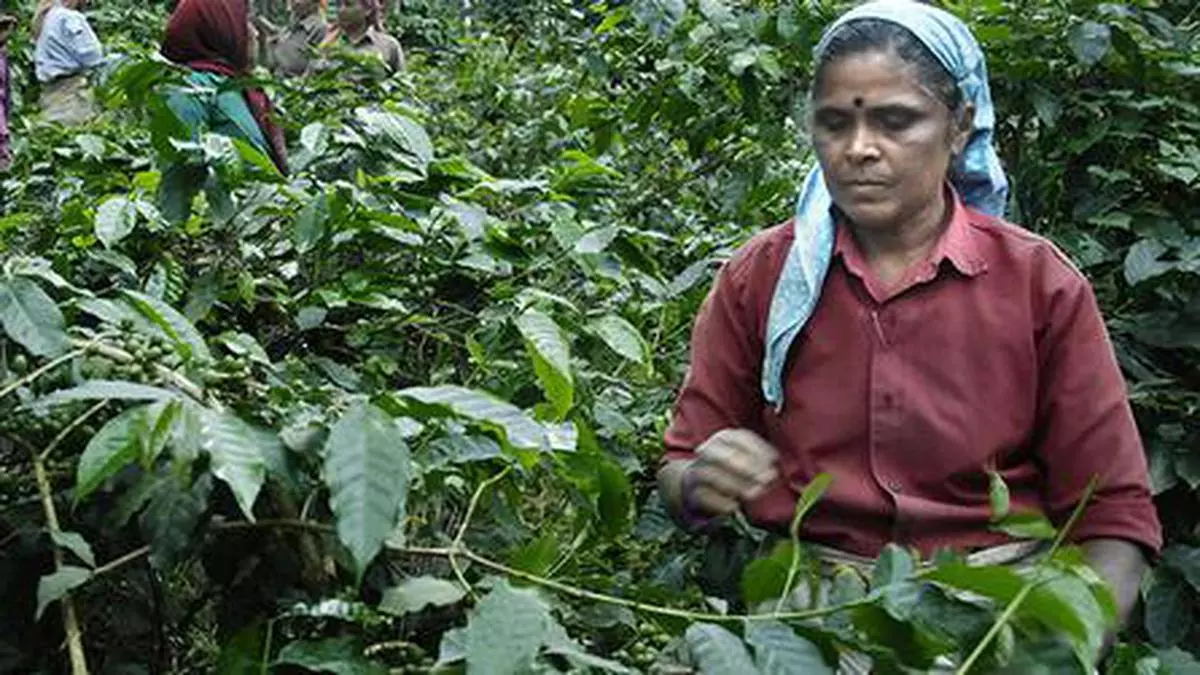Walmart Foundation initiative helps small coffee growers achieve double-digit growth
A survey of farmer producer organisations (FPOs) of small coffee growers has revealed that they earn 29 per cent higher revenue on average compared to other FPOs, thanks to a Walmart initiative.
The study, undertaken by Sambodhi, an India-based impact measurement firm, shows that FPOs have a higher ability to provide inputs and support sale of final produce to more varied markets.
The Walmart Foundation works together with the implementing partners to strengthen the FPOs to build a sustainable coffee value chain, a statement from Walmart Foundation said.
Key collaborators
The key collaborators of the Walmart Foundation project are global non-profit organisations Precision Development and TechnoServe. These organisations have helped small farmers and FPOs to harness the power of technology, data, adoption of sustainable farming practices and increased market access.
While Precision Development reaches out to 70,000 coffee farmers in Karnataka and Andhra Pradesh, TechnoServe has been engaged with over 10,000 farmers across eight FPOs.
The statement said Sambodhi assessed the efficacy of Walmart Foundation’s investments in enhancing livelihoods and incomes for Indian FPOs. It indicated that interventions by implementing partners strengthened systems and processes at the FPOs level.
“This has led to higher revenues and profitability as well as increased representation of women at the farm level and in FPO leadership,” it said.
Addressing market access
PxD enables farmers to employ avant-garde techniques and sets standards in coffee cultivation. PxD’s focus on digital agricultural advisory and market connectivity has facilitated increased yield and improved income for coffee farmers. Additionally, their guidance has resulted in reduced usage of pesticide, the statement said.
To address limited market access and fair value distribution for smallholder coffee farmers in Karnataka, PxD together with Sustainable Trade Initiative IDH is working on a two-pronged strategy. One is by engaging international coffee traders to include smallholders in their value chains. The other is building institutional capacity with FPOs to target training programmes that have benefited over 5,000 farmers and four FPOs.
TechnoServe has been working toward improving the yield and income of coffee farmers and has reached over 10,000 farmers across 500 villages. Its training programs have helped farmers adopt more sustainable agricultural practices such as pruning and mulching.
It has supported FPOs working with coffee to set up their own post-harvest infrastructure such as wet mills, drying yards, hybrid dryers, and storage facilities. This has increased the capacity of FPOs to consistently sell larger volumes and better-quality coffee.
Farmers under this programme have reported 17 per cent increase in yield and 17 per cent better revenue from coffee. Considerable increase in the net price for their produce over the last couple of years contributed to this revenue growth.
In partnership with TraceX, TechnoServe provides traceability to coffee farmers, enabling them to earn better prices for their produce.
Revolutionising cultivation
Julie Gehrki, Vice President, Chief Operating Officer, Walmart Foundation, said, “By adopting advanced techniques and market linkages, these farmers are revolutionising coffee cultivation, resulting in remarkable improvements in sustainability, productivity, and income generation.”
Niriksha Shetty, Chief of Programs, Precision Development, said, “This programme has been a game-changer to smallholder coffee farmers, providing invaluable, customised support to over 70,000 coffee and spice farmers in Karnataka and Andhra Pradesh who are now able to make better decisions for their crops in a timely manner.”
Krishnan Hariharan, Senior Practice Leader, TechnoServe India & Project Director for the ‘Sustainable Livelihoods for Smallholder Farmers’ Program said, “Over the next two years, we aim to further the benefits of collectivisation for coffee farmers in the region. We are working towards helping these FPOs become market players that promote a sustainable and gender-inclusive coffee value chain.”
